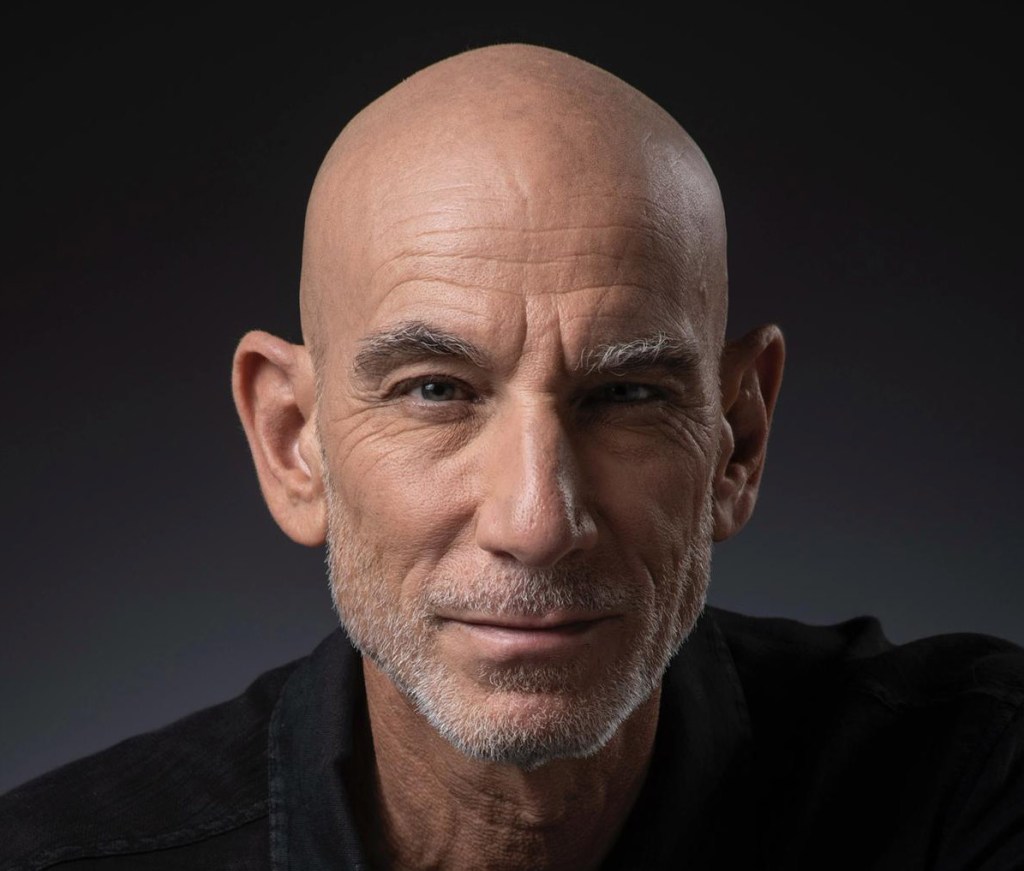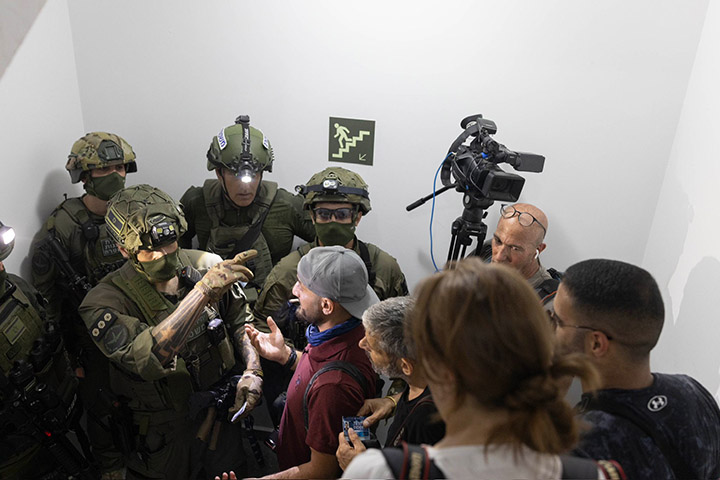Nazareth, Israel, July 9, 2025—Israel’s 12-day war with Iran provided Prime Minister Benjamin Netanyahu’s government with an opportunity to step up its assault on the press — a trend that has since continued apace.
“Media freedom is often a casualty of war, and Israel’s recent war with Iran is no exception. We have seen Israeli authorities use security fears to increase censorship, while extremist right-wing politicians have demonized the media, legitimizing attacks on journalists,” said CPJ Regional Director Sara Qudah. “Despite hopes that we will see a ceasefire in Gaza this week, Israel’s government appears relentless in its determination to silence those who report critically on its military actions.”
After Haaretz newspaper published an interview with Israeli soldiers who said they were ordered to shoot at unarmed Gazans waiting for food aid, a mayor in southern Israel threatened to shut shops selling the popular liberal paper. This follows the government’s decision last year to stop advertising with Haaretz, accusing it of “incitement.”
Authorities are also pushing ahead with a bill to dismantle the public broadcaster, Kan, and shutter its news division, the country’s third-largest news channel. Meanwhile, government support has seen the right-wing Channel 14 grow in popularity.

The hostile climate fueled by Israel’s right-wing government has emboldened settler violence against journalists. On July 5, two Deutsche Welle (DW) reporters wearing press vests were attacked by Israeli settlers in Sinjil, West Bank — an incident condemned by Germany’s ambassador and the German Journalists’ Association, which called it “unacceptable that radical settlers are hunting down media professionals with impunity.” Reporters from AFP, The New York Times, and The Washington Post were also present. Palestinian journalists had to flee.
“War is a dangerous time for civil rights – rights that Netanyahu’s government is actively undermining as it moves toward dismantling democracy,” Haaretz Editor-in-Chief Aluf Benn told CPJ.
‘Broadcasts that serve the enemy’
During the Israel-Iran war of June 13 to 24, anti-press government actions included:
- A June 18 military order requiring army approval before broadcasting the aftermath of Iranian attacks on Israeli military sites. Haaretz reported that this order was illegal as it was not made public in the official government gazette or authorized by a parliamentary committee.
- On June 19, security minister Itamar Ben-Gvir called on Israelis who see people watching “Al Jazeera broadcasts or reporters” to report their sightings to authorities. Israel shut down the Qatari-based outlet in May 2024, and six of its journalists have been killed while reporting on Israel’s war in Gaza. Many Arabs in Israel still watch Al Jazeera broadcasts, and former Israeli officials have appeared on the network since the shutdown.
“These are broadcasts that serve the enemy,” Ben-Gvir said.
- On June 20, Ben-Gvir and communications minister Shlomo Karhi issued a directive that broadcasting from impact sites without written permission would be a criminal offense.
When Attorney General Gali Baharav-Miara demanded that the ministers explain the legal basis for their announcement, the ministers said she was “trying to thwart” their efforts to ensure that foreign media “don’t help the enemy target us.”
- On June 23, Haaretz reported that the police’s legal adviser issued an order giving officers sweeping powers to censor journalists reporting from the impact sites.
“This directive, which primarily targets foreign media and joins a wave of police and ministerial efforts to obstruct news coverage, is unlawful and infringes on basic rights,” Tal Hassin, an attorney with Israel’s biggest human rights group, the Association for Civil Rights in Israel (ACRI), told CPJ.
ACRI petitioned the Attorney General, arguing that the police adviser did not have the legal authority to issue such an order. It has not received a response.
Journalists censored, detained, and abused
CPJ subsequently documented at least four incidents involving journalists who were abused and blocked from reporting.
- On June 20, police stopped a live broadcast from Tel Aviv by Turkish state-owned broadcaster TRT’s correspondent Mücahit Aydemir, although he told the officers he had the required permits, including authorization from the military censor. For several days afterwards, Aydemir received “unsettling phone calls” from unknown Hebrew-speakers, he told CPJ.

- On June 21, privately owned Channel 13’s journalist Ali Mughrabi and a camera operator, who declined to be named, citing fear of reprisals, were expelled from a drone crash site in Beit She’an, northern Israel, despite showing their press accreditation. During a live broadcast, Deputy Mayor Oshrat Barel questioned their credentials, shoved the cameraperson, and ordered them to leave. She later apologized.
“What we’re experiencing isn’t just about the media — it’s about citizenship,” Mughrab, an Israeli citizen of Palestinian origin, told CPJ.
- On June 22, a civilian police volunteer squad, led by far-right activist and rapper Yoav Eliasi, known as “The Shadow,” detained three Jerusalem-based, Arab Israeli journalists and one international journalist, after separating them from their non-Arab colleagues outside a building in Tel Aviv that had been damaged by an Iranian strike.
Mustafa Kharouf and Amir Abed Rabbo from the Turkish state-owned Anadolu Agency, Ahmad Gharabli, with Agence France-Presse news agency, and another journalist who declined to be named, citing fear of reprisal, were held for three hours.
Kharouf told CPJ, the unit asked them who was “Israeli” and allowed the non-Arab journalists to leave.
“One officer accused us of working for Al Jazeera, even though we showed official press credentials,” said Kharouf.
“When I showed my ID, they told me I wasn’t allowed to film because I’m not Israeli – even though they treat us like Israelis when it comes to taxes,” Gharabli told CPJ.
Armed volunteer squads have rapidly grown from four before the October 2023 Hamas attack to around 900 new units, an expansion that “had negative effects on Arab-Jewish relations,” Dr. Ark Rudnitzky of Tel Aviv University told CPJ in an email. Squad members “tend to suspect an Arab solely because they are Arab,” he said.
“It was clear they targeted the journalists because they were Arab,” said Israeli journalist and witness Oren Ziv, who wrote about the incident.
The Central District Police told CPJ via email that the journalists were “evacuated from the building for security reasons related to their safety and were directed to alternative reporting locations.”
- On June 24, Channel 13 correspondent Paz Robinson and a camera operator who declined to be named were reporting on a missile strike in southern Israel’s Be’er Sheva when a woman shouted that he was a “Nazi” and “Al Jazeera” and blocked him from filming, screaming, “You came to celebrate over dead bodies.”
“After I saw the woman wasn’t backing down, I decided to leave. I’m not here to fight with my own people. I’m not a politician. I came to cover events,” Robinson told CPJ.
Earlier in the war with Iran, CPJ documented eight incidents in which 14 journalists faced harassment, obstruction, equipment confiscation, incitement, or forced removal by the police.
The Israel Police Spokesperson’s Unit told CPJ via email that police “made significant efforts to facilitate safe, meaningful access for journalists” during the war with Iran. “While isolated misunderstandings may occur…case was addressed promptly and professionally.”
CPJ’s emails to the Attorney General, Israel Defense Forces’ North America Media Desk, Ben-Gvir, and Shlomo requesting comment did not receive any replies.
Kholod Massalha is a CPJ consultant on Israel and the Occupied Palestinian Territory and a researcher with years of experience in press freedom and freedom of expression issues.
This content originally appeared on Committee to Protect Journalists and was authored by Mohamed Mandour.